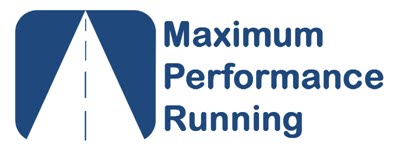Marathoner Alana Hadley enjoying a "Brisk" run
Today I want to introduce to you a type of workout aimed at improving your energy system efficiency. This is an enjoyable workout that, when incorporated into your program, can help you become a stronger and more successful marathon runner. I call it the "brisk paced run".
The Brisk Paced Run
Duration: 60-90 minutes
Pace: 4-5% slower than aerobic threshold (AT) pace. For the sub 3:00 marathoner this will be a slightly slower than marathon race pace. For a mid 3 hour marathoner this will be marathon pace to 10 seconds a mile slower and for the 4+ hour marathoner this is will roughly marathon race pace.
Here is a chart of "brisk pace" for a neutral predisposition marathon runner of different marathon times.
2:15 marathon (5:09 pace) = brisk pace of 5:20 - 5:27
2:30 marathon (5:43 pace) = brisk pace of 5:52 - 5:59
2:45 marathon (6:18 pace) = brisk pace of 6:24 - 6:32
3:00 marathon (6:52 pace) = brisk pace of 6:56 - 7:05
3:15 marathon (7:26 pace) = brisk pace of 7:28 - 7:37
3:30 marathon (8:01 pace) = brisk pace of 8:00 - 8:10
3:45 marathon (8:35 pace) = brisk pace of 8:32 - 8:42
4:00 marathon (9:09 pace) = brisk pace of 9:04 - 9:15
4:30 marathon (10:19 pace) = brisk pace of 10:07 - 10:18
Execution: use the first 10 minutes of the run to warm-up and slowly ease into your brisk pace range, then hold the pace steady at brisk pace for the remainder of the run. The focus of the run should be on running as relaxed and smooth as possible at this pace range. Rather than see how fast you can do the run, focus instead on how easy and relaxed and you can make this pace feel.
This should not be an overly fatiguing workout, but rather an invigorating run in which you finish pleasantly tired. While it is recommended you follow this run with an easy/recovery run the following day, it is not meant to be an overly hard stress workout requiring significant recovery time.
Use: This is a great workout to use periodically in your marathon training to help practice and improve your ability to run as relaxed and smooth as possible at a quicker pace. Since it is not an overly hard workout it can often fit periodically into a runner's weekly schedule along with a quality workout and long run.
Benefits: The main benefit of this run is increased energy usage efficiency, which is of great importance in the marathon. In this run we run at or semi-close to marathon race pace with our primary focus on staying as smooth and relaxed as possible. Learning to stay smooth and relaxed at a quicker pace will make us more efficient in our energy usage at that pace and similar paces (i.e. marathon race pace). But while providing this benefit this workout is not overly taxing in itself and so can be regularly incorporated into a schedule along more taxing or intense workouts.
Fueling: You can increase the usefulness of this workout as race day nears by practicing your planned marathon fueling (drinking and taking of gels) once or twice during the run. This will help you practice what you plan to do during the race and at a similar pace. It is a great time to train the stomach as well as the legs.
Fueling: You can increase the usefulness of this workout as race day nears by practicing your planned marathon fueling (drinking and taking of gels) once or twice during the run. This will help you practice what you plan to do during the race and at a similar pace. It is a great time to train the stomach as well as the legs.
Happy Marathoning!
Coach Mark Hadley


Good share,
ReplyDeletecomo crecer las pestanas
I have been inactive for years and recently started back running distance. My last marathon was in 1989 and was a 3:05 I am currently running 9:30 pace with a goal of getting back to 7:30 pace by May next year is this reasonable?
ReplyDeleteReally good information shared about running! Running coaches
ReplyDelete